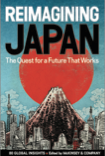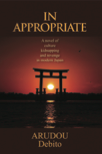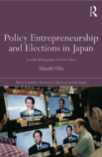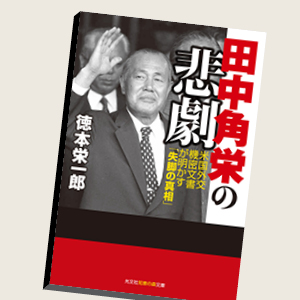 Reimagining Japan: The Quest for a Future That Works
Reimagining Japan: The Quest for a Future That Works
This collection of essays by 80 contributors—with a wide range of backgrounds, including CEOs, academics, authors and even a football manager— offers thoughts and potential solutions for the economic, social and demographic challenges that Japan faces. The project was underway before 11 March, but some chapters were either added or rewritten in the wake of the triple disaster, which has since become a focal point for reforming Japan.
The Japanese contributors are more scathing in their criticism of the country than their foreign counterparts, although this is probably a matter of outsiders showing good manners. Tadashi Yanai, founder and president of Fast Retailing, of which Uniqlo is a subsidiary, complains that Japan is still excessively risk averse, while Takeshi Okada, manager of the Japan team at the last World Cup, bemoans the lack of youngsters willing to travel abroad. Tomoko Nanba, the entrepreneurial founder of DeNA— operator of mobile gaming platform Mobage Town—points at the lack of a venture capital culture.
With so many different voices, there are conflicting and contradictory opinions regarding what Japan can and should do, and it is worth listening to every one of them.
 In Appropriate
In Appropriate
This first novel by Arudou, a long-time activist for the rights of non-Japanese residents, is a bleak look at what can happen when an international marriage in Japan goes wrong. With sole custody of children almost invariably given to mothers and minimal visitation rights granted to fathers in all divorce cases in Japan, being a foreign dad in such circumstances is rarely an advantage. Although a work of fiction, the story is based on an amalgamation of real cases in which non-Japanese fathers were denied access to their children. In some well-publicised instances, the fathers found themselves on the wrong side of Japanese law as they tried to reach their children.
The personal experiences and life-view of the author—who changed his name from David Aldwinckle when he became a naturalised Japanese citizen—also resonate loudly through the narrative. Arudou writes in a prologue that he has been denied almost all access to his children since his divorce. While the book is clearly intended as a cautionary tale, at times it reads as if it were trying to pack a composite picture of every gaijin nightmare into its 130-odd pages.

Policy Entrepreneurship and Elections in Japan: A Political Biography of Ozawa Ichiro
The first biography available in English of Ichiro Ozawa, one of the most important Japanese politicians of recent decades, the book also delivers an insightful look at contemporary domestic politics and the electoral system. Described as the “Shadow Shogun”, “Destroyer” and, by a political ally, as “looking like a toad which has just licked something very bitter”, Ozawa is credited with being the architect of the Democratic Party of Japan’s historic 2009 victory.
Oka—a veteran journalist, who received a PhD from Oxford in 2008—provides an interesting portrait of Ozawa, including details of his admiration for the British political system. The book’s major strength however—the closeness of the author to the subject—is also its main weakness. The fact that Oka was an aide and interpreter for Ozawa, gave him unbridled access to the politician, but he is also clearly a fan and supporter. Despite acknowledging his former boss is “flawed” in his introduction, he goes on to skirt much of the behaviour that has so polarised opinion on Ozawa.





